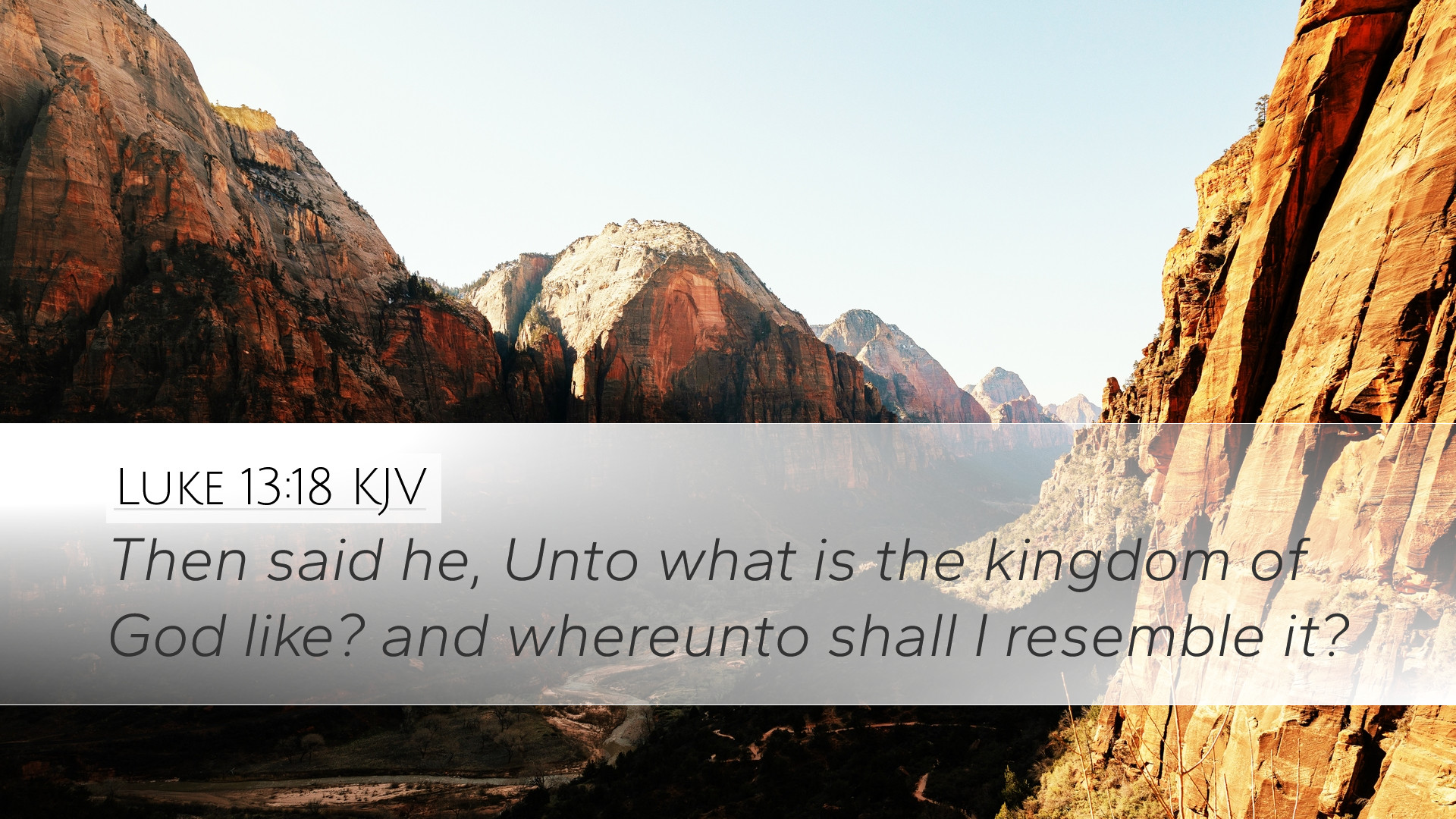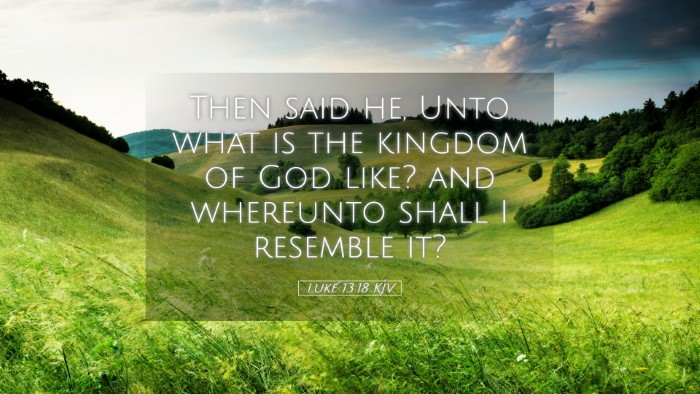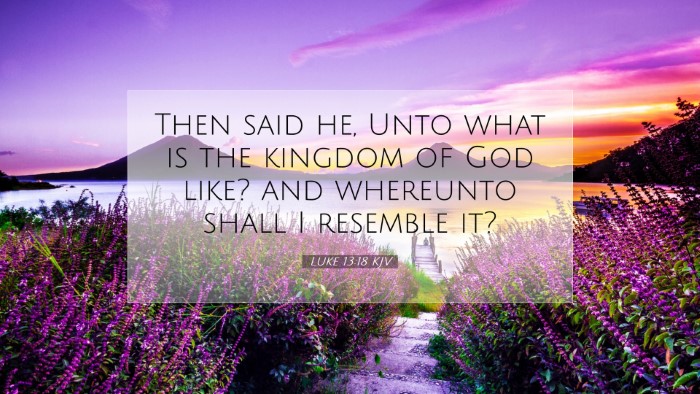Commentary on Luke 13:18
Verse Text: "Then said he, Unto what is the kingdom of God like? and whereunto shall I resemble it?" (Luke 13:18, KJV)
Introduction
In this passage, Jesus presents a compelling inquiry concerning the nature of the Kingdom of God. The question posed is not merely for curiosity; it serves to draw listeners into a deeper understanding of God's Kingdom through metaphor and parable. Commentators throughout history, including Matthew Henry, Albert Barnes, and Adam Clarke, provide rich insights into this verse, which can significantly impact pastors, students, theologians, and biblical scholars alike.
Exegesis and Interpretation
Context and Setting
This passage falls within a section of Scripture where Jesus teaches about the nature and values of the Kingdom of God. Prior to this verse, He discusses the narrowness of the path leading to salvation (Luke 13:22-30) and the urgency of repentance. Henry emphasizes the importance of understanding the paradigm of God's Kingdom in contrast to worldly expectations.
Insights from Commentators
-
Matthew Henry:
Henry portrays the Kingdom of God as a reality that possesses both present and future dimensions. He remarks on the importance of perceiving the Kingdom amidst earthly struggles, suggesting that it is often likened to something small that grows into something magnificent.
-
Albert Barnes:
Barnes focuses on the metaphorical representations Jesus provides following this inquiry. He indicates that the Kingdom of God operates contrary to human logic—small beginnings lead to grand outcomes, paralleling the mustard seed and the leaven used in subsequent verses.
-
Adam Clarke:
Clarke emphasizes the divine initiative behind the expansion of God’s Kingdom and the transformative power it holds. He highlights the role of faith in embracing God's Kingdom, contributing to its growth and influence among humanity.
Key Themes
The Nature of the Kingdom
One principal theme in this verse and the surrounding discussion is the humility and unexpected nature of the Kingdom of God. Jesus uses simple, relatable imagery to challenge misconceptions—indicating that what seems insignificant carries tremendous potential. This aligns with the teachings seen in the parables throughout the Gospel.
Growth and Influence
The mustard seed and leaven symbolize the Kingdom’s transformative growth. Initially imperceptible, both elements illustrate the underlying power that eventually manifests in visible change. As Clarke notes, just as the mustard seed grows into a tree, leading to refuge for birds, the Kingdom of God provides shelter and transformation.
Application for Believers
This parable invites believers into a reflective space where they might consider how they perceive their own faith journey and the collective journey of the Church. The growth of God's Kingdom, though often slow and incremental, calls for patience and trust in divine timing.
Theological Reflections
Theological Implications of Small Beginnings
The mention of small beginnings in this context resonates with a significant theological principle—the idea that God's ways are not aligned with human expectations. This principle finds its roots in several biblical narratives, where God often chooses the least likely candidates to achieve His purposes, encouraging a broader application of faith, humility, and reliance on God.
Faith and the Kingdom's Expansion
As discussed by Henry and Clarke, faith serves as a catalyst for the Kingdom's expansion. Just as a small amount of leaven permeates dough, the influence of faith, though it may start small, has the potential to affect wider communities and cultures. This theme acts as a call to action for believers to nurture their faith as the means through which God’s Kingdom will proliferate.
Conclusion
In Luke 13:18, Jesus asks a simple yet profound question that invites His followers to contemplate the nature of God's Kingdom. The reflections from Henry, Barnes, and Clarke affirm that through humility and faith, believers can comprehend the expansive, transformative, and sometimes quietly growing nature of God's reign. As they mediate on this verse, pastors, students, and scholars alike are urged to embrace the small beginnings, fostering a deeper faith that contributes to the Kingdom's growth in their own lives and communities.


